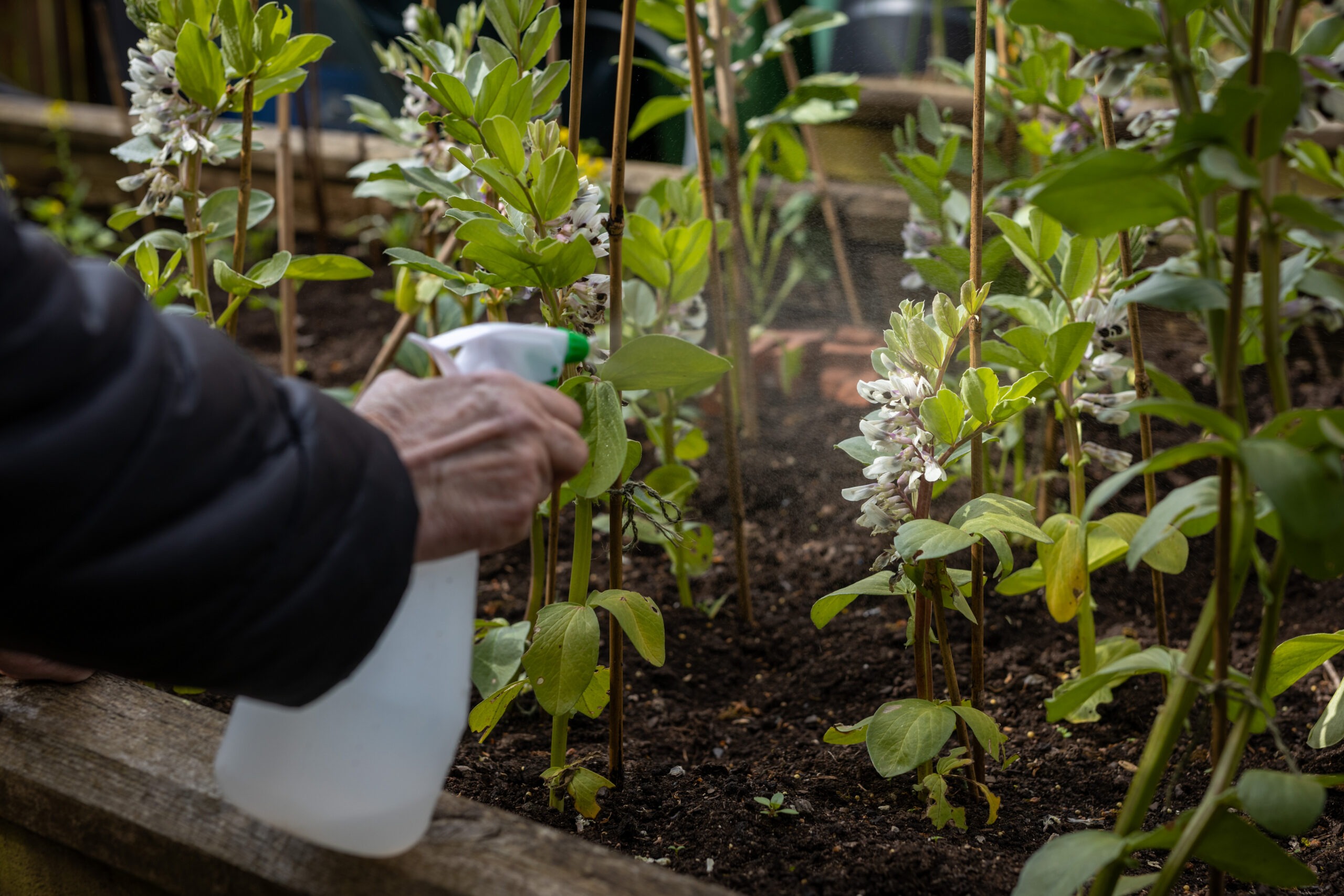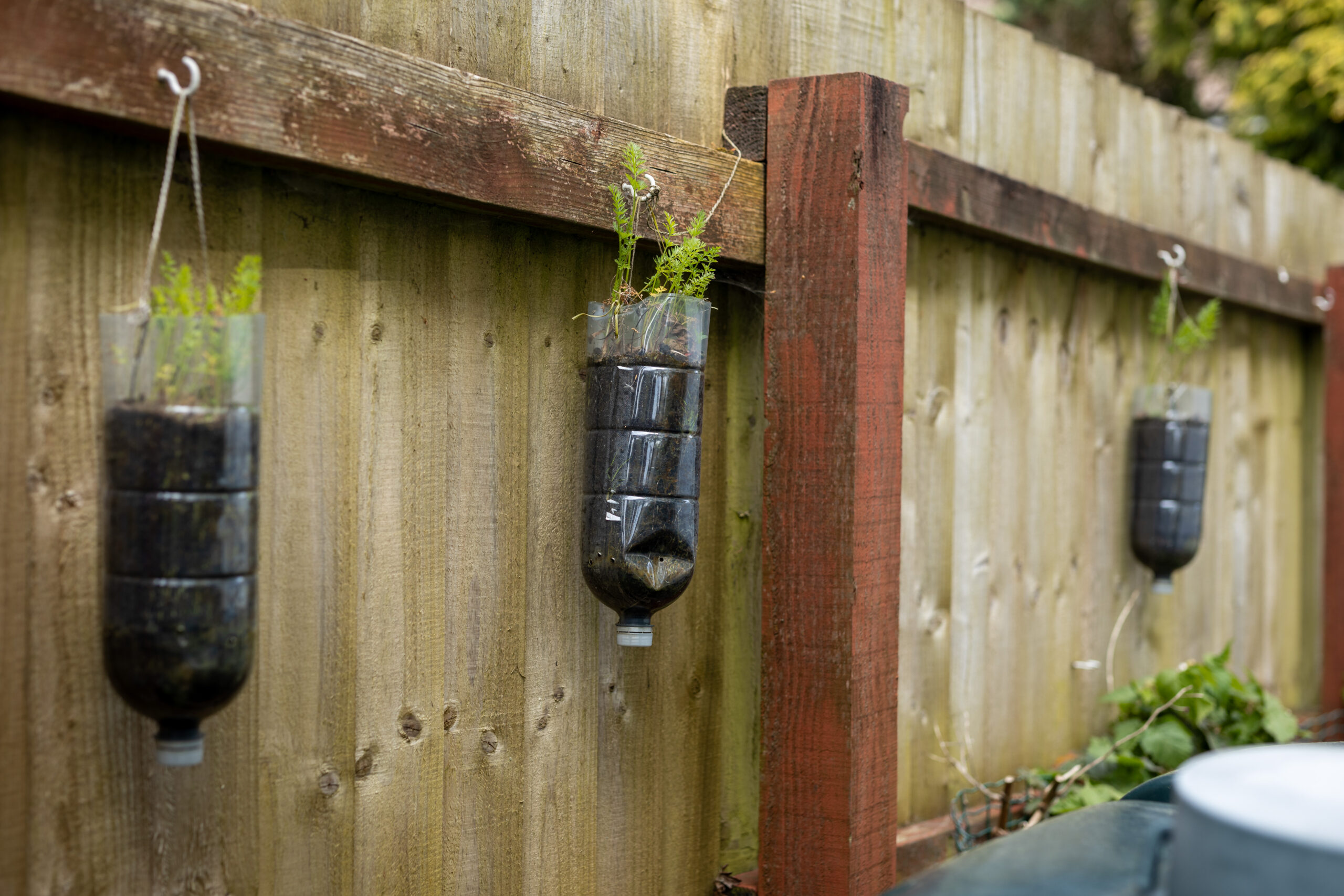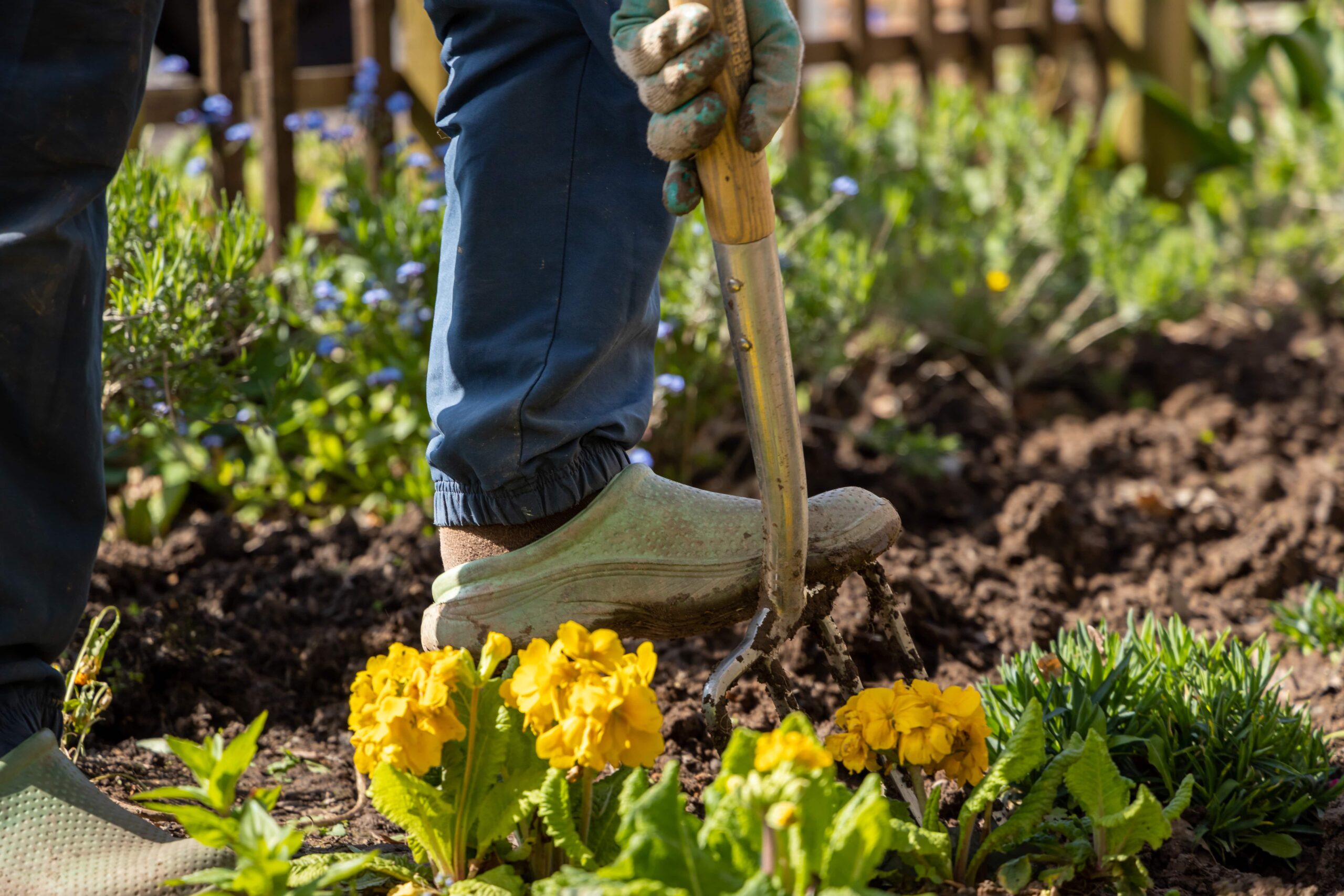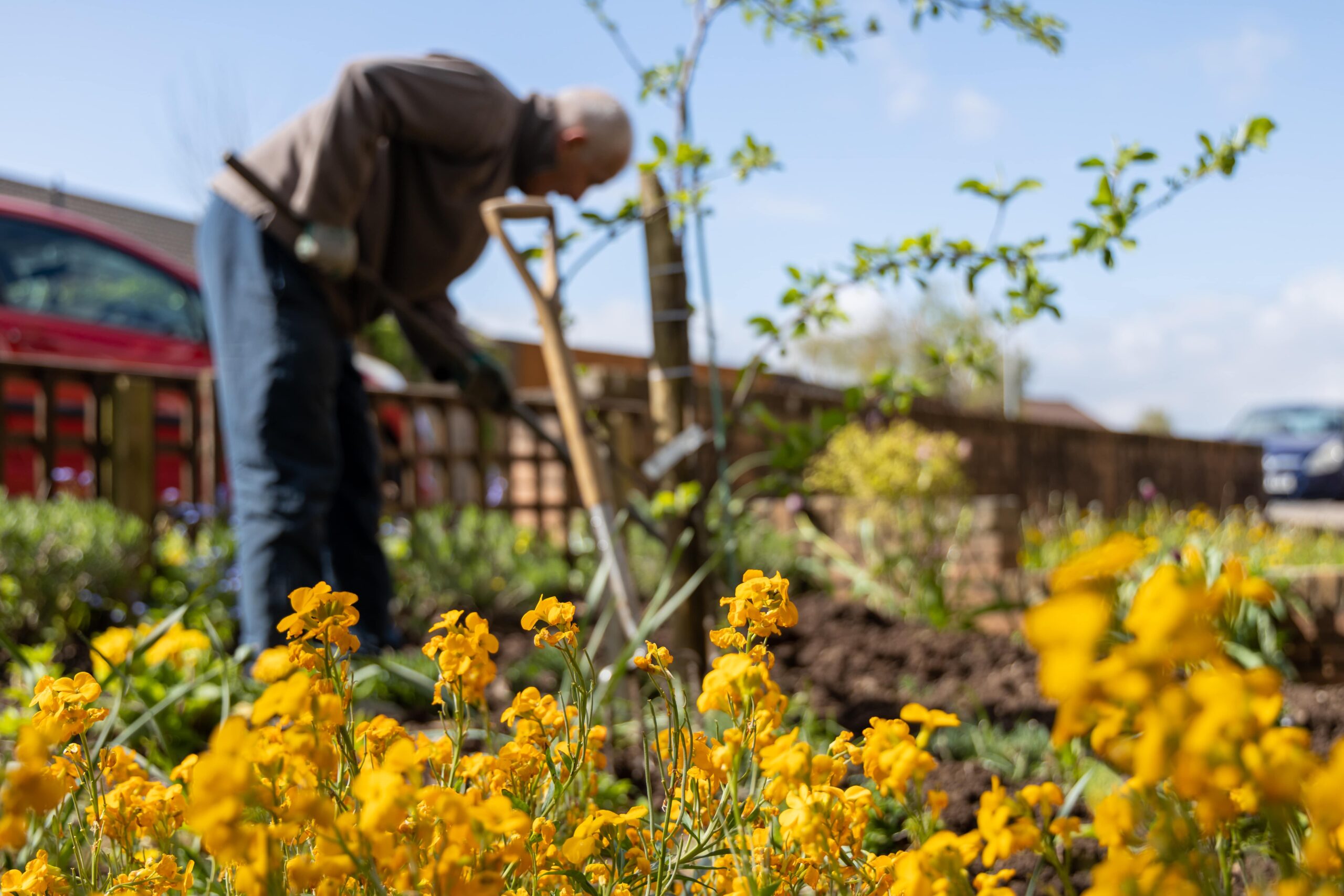Ways to recycle in the garden
Summer is probably the most exciting time for gardeners when the fruit is ready to pick and flowers are out in bloom.
Our resident gardeners at St Mellons Community Garden in Cardiff have these tips for a sensational summer garden that won’t cost the earth.
Recycle empty plastic bottles into a self-watering “globe” for large pots or raised beds. To do this make some holes in the bottom of a 500ml or 1 litre bottle. Plant the bottle into the bed or pot, fill with water and put the top back on.
Larger 5 litre plastic bottles can be turned into planters. Just make sure you add holes in the bottom for drainage. They’re good for growing “cut and come again” lettuce leaves or carrots. Buckets and old wellies can also make quirky and colourful planters.
Old bottle caps, particularly the larger ones, can make labels for your plants. Or you could use lollipop sticks or painted stones.
Pest control
Black fly and white fly are the gardeners’ enemy in the summer. Make your own eco-friendly spray to get rid of them. Put 500ml of water in a jug and add around a tablespoon of washing-up liquid. Ecover is more expensive than other liquids but it’s plant based and won’t add chemicals into your garden and one bottle will go a long way.
Put the mixture in a spray bottle. You can recycle empty sprays from your kitchen or bathroom cleaners, just make sure you clean them thoroughly.
Stop the slugs by sprinkling crushed eggshells around your plants. If you have a coal fire or log burner, ash from the fire also does the same job.

Natural fertilisers
Crushed eggshells provide food for the plants, as well as stopping slugs.
Coffee grounds act as a natural fertiliser for acid-loving plants like blueberries. You can sometimes get them from your local coffee shop. Be warned, the caffeine in coffee can be toxic to dogs.

Plants that grow together, thrive better
Companion planting is a common term in gardening, but what does it mean?
It’s an organic way to maintain a natural balance by growing plants together that in certain combinations can keep pests under control, prevent disease and aid pollination. Many of the companion plants have a strong scent and can confuse pests, while others attract beneficial insects, such as ladybirds, which eat aphids and black flies.
Here are some of the common combinations
- Basil – beans, cabbage and tomatoes
- Camomile – cucumber
- Dill – cabbage, lettuce
- Lemon balm – tomato
- Mint – cabbage
- Oregano – cabbage, cucumber
- Parsley or chives – carrot, tomato
- Rosemary – beans, cabbage, carrot
- Sage – cabbage, carrot, strawberries
- Thyme – cabbage
- French marigold – tomato



